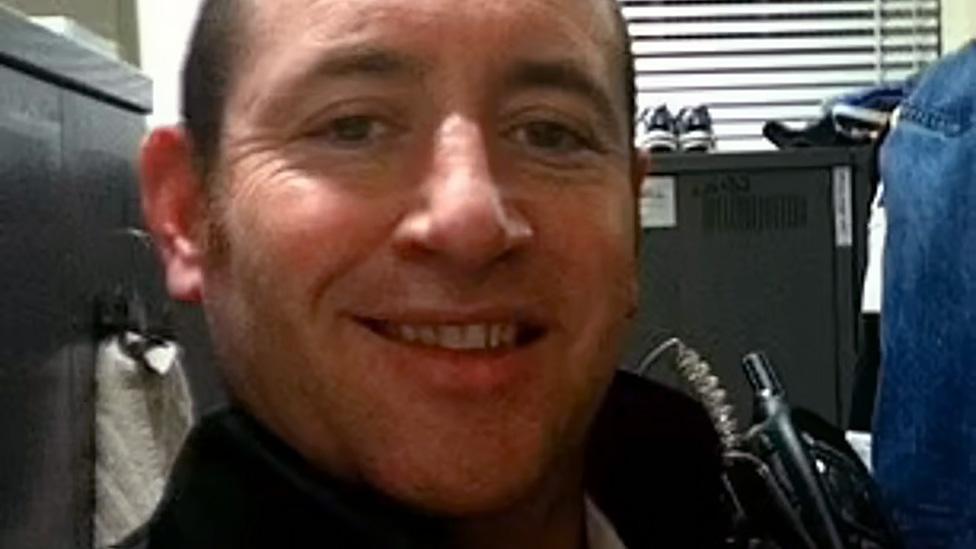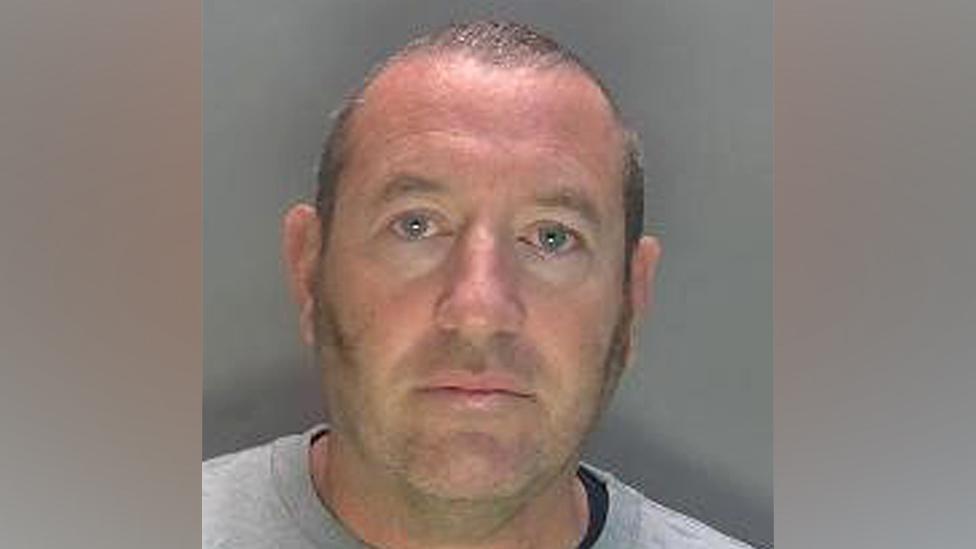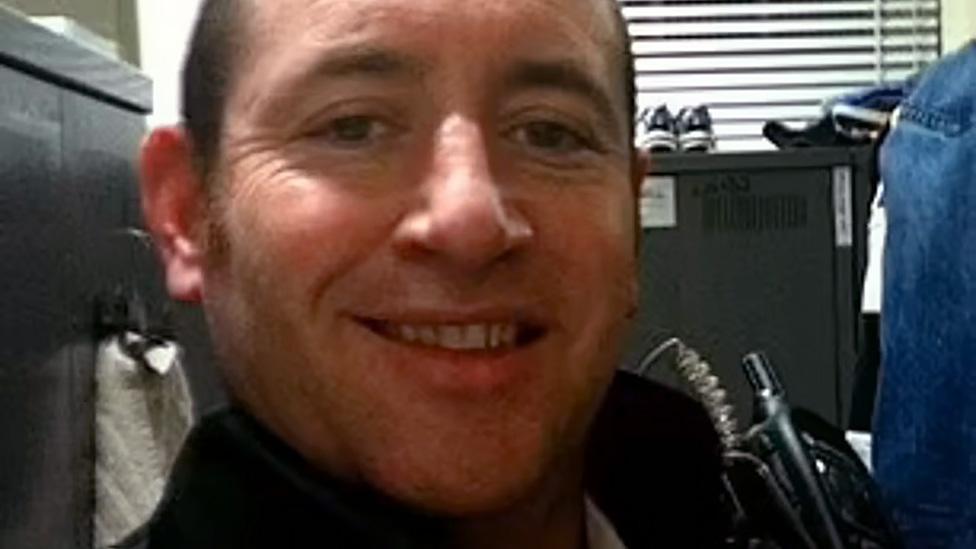David Carrick: Serial rapist police officer could lose pension
- Published

David Carrick is due to be sentenced for his offending in February
Ministers have backed efforts to strip a serial rapist police officer of his state-funded pension.
David Carrick, 48, was sacked by the Metropolitan Police after he admitted dozens of rapes and sexual offences against 12 women over two decades.
An application for his pension forfeiture will be considered by the Home Office.
Prime minister Rishi Sunak, meanwhile, promised police reforms so offenders would have "no place to hide".
He told Prime Minister's Questions this extended to those who had "failed to act to reprimand or remove those people from office".
Home Secretary Suella Braverman and Robert Jenrick, a minister in her department, have both spoken in favour of stripping Carrick of his pension, reported to be £22,000 a year, after London Mayor Sadiq Khan called for its forfeiture.
Ms Braverman said: "David Carrick's sickening crimes are a stain on the police and he should never have been allowed to remain as an officer for so long.
"I support the Mayor's Office in pursuing the forfeiture of his pension.
"I will consider any application for a forfeiture certificate from [the the Mayor's Office for Policing and Crime]."
Mr Jenrick told ITV's Good Morning Britain: "There are very strong arguments for doing so as although some of this activity may have occurred outside of David Carrick's exact role, it was linked to it."
WATCH: Suella Braverman - More shocking cases may come to light in the short-term
He added on Sky News: "This is one of the most egregious cases of police misconduct in the history of the Met, perhaps in the history of British policing.
"This disgusting individual should not benefit from his years serving in the Metropolitan Police."

How can an ex-officer's pension be taken away?
There is a drawn-out process: The first step is that a police chief and the relevant elected police commissioner - in Carrick's case the Mayor of London Sadiq Khan - agree on whether a former or serving officer's crimes should trigger a review of their pension reward.
They submit the case to the home secretary.
She or a junior minister must then certify whether the officer's offending had been "liable to lead to a serious loss of confidence" in policing or had been "gravely injurious to the interests of the state".
Assuming Ms Braverman makes that order in relation to Carrick, the file would return to the police and the Mayor of London's office.
Sadiq Khan and Sophie Linden, the deputy mayor who oversees policing, then work through a formal recommendation from Scotland Yard.
They consider the nature of the crime, its impact on public confidence and why they think it was related to the officer's duties.
The decision-making typically takes into account the trial judge's sentencing remarks in court.
The mayor must allow the officer a chance to make representations and also consider mitigating circumstances, such as whether the pension is needed because of disability in the family.
"The baseline position, in principle, is that pension rights, once earned, will only be forfeited in serious circumstances," says the rule book.
Officers convicted of crimes can only ever lose a maximum of 65% of their whole pension.
If an officer loses any part of their pension, they have 14 days to appeal against the decision.

Speaking to the House of Commons, the prime minister said: "I know members from across the House will be as shocked and as appalled as I am about the case of David Carrick.
"The abuse of power is truly sickening and our thoughts are with his victims.
"The police must address the failings in this case, restore public confidence and ensure the safety of women and girls.
"There will be no place to hide for those who use their position to intimidate those women and girls, or those who have failed to act to reprimand or remove those people from office."
All police forces have also been asked to check their officers and staff against national police databases to "identify anyone who has slipped through the net" in the wake of the Carrick case, the Home Office says.
Carrick pleaded guilty to six offences at Southwark Crown Court on Monday, and had already admitted 43 others in December.
He is due to be sentenced in February.

Follow BBC London on Facebook, external, Twitter , externaland Instagram, external. Send your story ideas to hellobbclondon@bbc.co.uk, external
- Published18 January 2023

- Published17 January 2023

- Published17 January 2023

- Published16 January 2023

- Published16 January 2023

- Published16 January 2023
